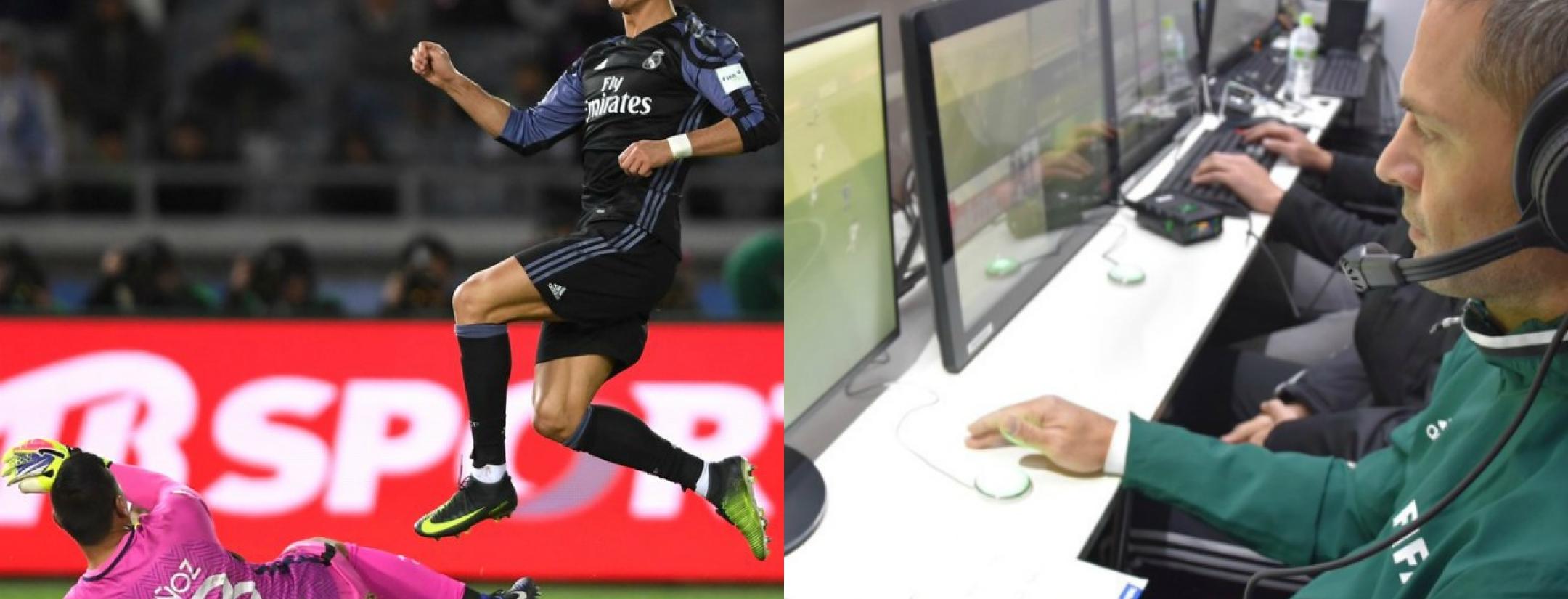Football has long been obstinate in its opposition to video technology, going so far as to appoint fifth and sixth officials to stand behind the goals doing absolutely nothing as opposed to implementing any kind of instant replay system.
Goal-line technology has, in recent times, been successfully used at the highest levels of the game, but this only came about because of legitimate instances of robbery at the pinnacle of the sport.
After many years of trial and error, the NFL implemented its current system of instant replay in 1999, making the necessary changes and improvements up until the present day. Cricket began implementing instant replay in 2008, rugby union in 2001 and baseball in 2008. Football, and it’s governing body FIFA in particular, have long decried additional video technology in the game on largely metaphysical grounds: football has a soul that must not be tampered with.
“Society is not perfect, football is not perfect, it must retain its human face,” said disgraced former FIFA president Sepp Blatter. This argument, which also pertains to the natural flow and rhythm of football’s continuous nature, has been hugely vindicated at the 2016 FIFA Club World Cup in Japan.
It’s a historic tournament in that, for the first time, match-changing decisions could be made with the assistance of video replay. The trial involves video assistant referees who analyze broadcast feeds from inside their own operations room, providing the crucial information to the referee on the pitch to correct clear mistakes or to investigate incidents that were otherwise missed.
“It’s important to remember that we are entering somewhat unchartered territory here, given that we are going live for the first time” said FIFA’s Chief Officer of Technical Development, Marco van Basten, before the tournament. “Ultimately, these tests should prove invaluable in terms of determining whether the processes are sound or whether any further refinements are needed.”
Based on how the tournament has gone so far, one can only conclude that FIFA are intentionally sabotaging the system.
On Wednesday, we saw the contentious nature of instant replay come to the fore after an instant replay showed that Atletico Nacional’s Orlando Berrio had fouled Kashima Antlers’ Daigo Nishi just inside the penalty area, resulting in a retrospective penalty for Kashima.
Nacional were incensed, especially since the penalty was awarded nearly a full minute after the original contact had taken place.
On Thursday, in the other semifinal between Club America and Real Madrid, the other complaint against video technology was then brought to the fore. Namely, that video replays in soccer will be too disruptive.
After Cristiano Ronaldo scored Madrid’s second goal in second half stoppage time, Paraguayan referee Enrique Caceres initially gave the goal, then consulted with the video official, appeared to overturn the goal but then eventually allowed it to stand.
It was an extremely confusing and odd response to a perfectly legitimate goal.
The implementation of the technology at the Club World Cup has largely dissuaded fans and players from further use.
“It’s a new system and I don’t like it very much. I think it can cause confusion and it wasn’t explained to us in much detail,” said Real Madrid’s Luka Modric. “My first impression was it’s not a very good system.”
Real Madrid manager Zinedine Zidane, always the diplomat, wasn’t in favor of the changes either: “If you ask me my personal impression it can cause confusion. We don’t have the power to decide. If that’s decided, then we need to get used to it.”
FIFA can be forgiven for botching this initial attempt as the use of the technology is still in its infancy, but don’t expect to see instant replay in use at the 2018 World Cup in Russia.




